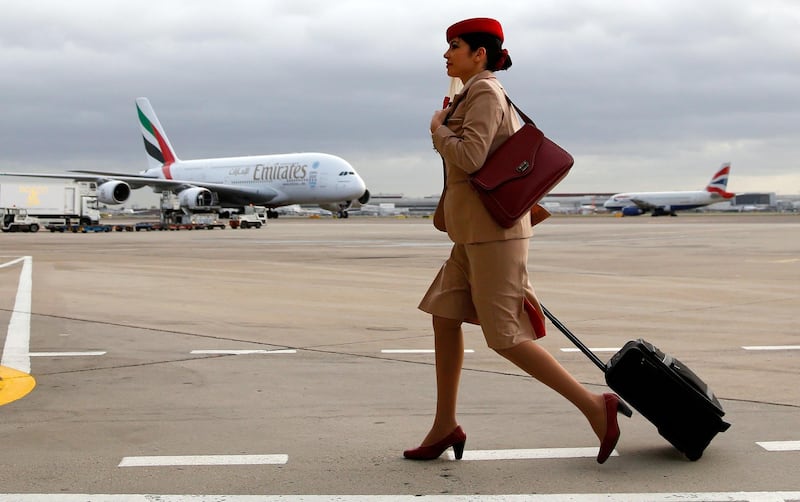One of the saddest bits of news from the aerospace industry in recent days is the almost certain demise of the Airbus A380, surely the most comfortable and majestic airliner ever designed. I fly it all the time, travelling from South Africa to London or another European city via the Middle East, and really look forward to it. It is the only plane where one does not want to get off.
Capable of carrying up to 850 passengers, it has been Airbus’s flagship project for the past two decades into which it has poured billions in development dollars (it has admitted to US$15 billion but analysts reckon it is at least $5bn more than that). Orders have never lived up to expectations and are now running dry. Emirates, which has been flying A380s since 2008, has basically kept the production line going, accounting for nearly half of the 220 planes delivered so far.
But Emirates seems to have decided that’s it. At the Dubai Airshow in November it failed to confirm a crucial $15bn order for another 36 A380s, probably sounding the death knell for this magnificent plane. At one stage Airbus was making 27 a year, but that has since halved and it needs to make at least six to eight planes a year for the next ten years to keep the production line open (Etihad has two on order).
There is a faint possibility that the Chinese might yet come to the rescue, but it is a long shot. On Monday, the company’s chief salesman, John Leahy, admitted gloomily that without an Emirates deal “we will have no choice but to shut down [the A380 production line]”. The Middle East airline has switched its allegiance to the twin-engined Boeing 787 Dreamliner instead, which is not as comfortable, but probably more practical.
In the fierce, no-holds-barred war between the two big airplane makers, Boeing has won this particular battle, although Airbus is still more than holding its own across the whole passenger jet market. Net orders rose by 52 per cent last year to 1,109, putting it well ahead of Boeing’s order book of 912 aircraft. In 2017 Airbus delivered a record 718 jets to customers, and will do even better this year.
___________
Read more:
[ Production of Airbus A380 hinges on Emirates deal ]
[ Airbus looks for lifeline in China post Emirates A380 setback ]
___________
The war between the two manufacturers is really becoming very nasty. Speaking at the UK aerospace industry's annual dinner in London on Monday night, Tom Enders, Airbus's chief executive, launched an astonishing attack on Donald Trump and the protectionist measures he has taken to defend Boeing which he reckons is threatening to wreck the whole system of free trade. "There is no one fighting for opening markets but [instead] closing US markets to foreign companies and foreign competitors," he told the black-tied dinner guests. Boeing, he went on, was "ruthlessly surfing" the US protectionist wave to smother competition, specifically the future of the Bombardier's C-series on which the US authorities are proposing to levy tariffs of 300 per cent. Airbus neatly side-stepped that one by buying a majority stake in the C-series for a nominal $1 and now plans to make it at its Alabama plant. But Boeing has hit back by partnering with a Brazilian rival, and so the ding-dong battle goes on.
Trump’s early promises of a new trade deal and of goodwill and renewed friendship towards his oldest ally are now just a joke. The thousands of workers in Belfast who currently make the C-Series fuselage are not laughing. Relations between the two countries have never been lower, as illustrated this week by Trump’s refusal to open the new US embassy in London because it is in the wrong place and was a Barack Obama idea anyway (it wasn’t – the decision to close the old embassy in Grosvenor Square was taken in George Bush’s day).
Mr Enders however has an even more important point to make (if that’s possible). Brexit, he warns, could seriously endanger the future of the aerospace in Britain and its role as a partner in Airbus. “The wreckage that President Trump will leave after four or eight years in the White House will be easier to repair than the exit of the UK from the EU,” he said on Monday.
The French, Germans and Spanish have always resented Britain’s role in the Airbus project and would love nothing more than to take away the production of the wings, currently made at the old Vickers plant in Broughton (where the Wellington bomber was produced in the War). Mr Enders has asserted many times that the UK business was Airbus’s most efficient and innovative operation. But he now warns that Brexit would strain that efficiency, add costs and “thereby curtail the competitiveness” of Airbus and Britain’s role in it.
That's unlikely to happen, and Mr Enders knows it. Airbus's UK operations can't easily be moved to a new plant in Europe, requiring yet more billions of capital investment and endangering the company's delivery schedule which is under strain already. But he still warned that whatever measures British industry took to mitigate the weakening of the trade ties between Britain and the EU, "the result of Brexit would be negative".
That’s not just scare-mongering – it’s the reality. British industry has few friends in the US. And it’s losing them fast in Europe.
Ivan Fallon is a former business editor of The Sunday Times






